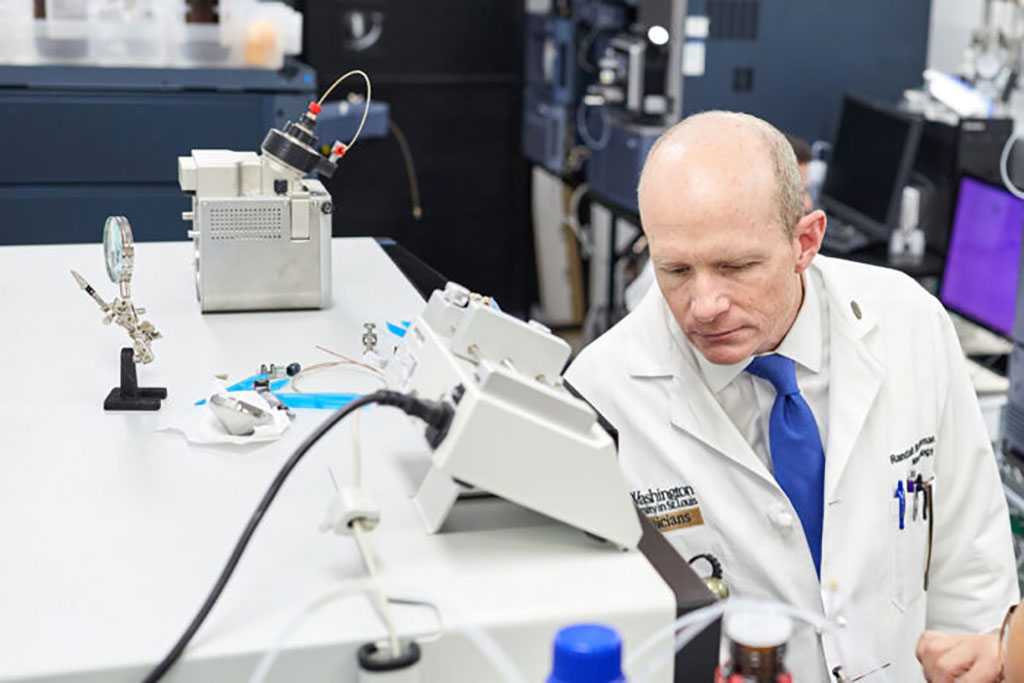Sensitive Diagnostic Test for Alzheimer’s Disease Demonstrates Accuracy Over Multiple Laboratories and Protocols
Posted on 01 Mar 2022
The diagnostic accuracy of a blood test that assesses whether amyloid plaques have begun accumulating in the brain based on the ratio of the levels of the amyloid beta proteins ABeta42 and ABeta40 was confirmed in a recent study.
To demonstrate that the immunoprecipitation mass spectrometry (IPMS) blood test for early diagnosis of Alzheimer’s disease remained highly accurate, even when performed in different laboratories following different protocols, was the goal of a team of investigators at Washington University School of Medicine (St. Louis. MO, USA)

To do this, they obtained 465 plasma samples from three large Alzheimer disease (AD) research cohorts in the United States (n = 182), Australia (n = 183), and Sweden (n = 100). The plasma ABeta42/ABeta40 ratio was measured by a high precision immunoprecipitation mass spectrometry (IPMS) assay and compared to the reference standards of amyloid PET (positron emission tomography), and CSF (cerebrospinal fluid) ABeta42/ABeta40.
Results revealed that the plasma ABeta42/ABeta40 ratio had good concordance with amyloid PET status, and that concordance improved with the inclusion of APOE epsilon4 carrier status from 0.85 to 0.93. These findings were consistent across the three cohorts, despite differences in protocols.
Since the IPMS assay has been developed commercially as the C2N Diagnostics (St. Louis, MO, USA) PrecivityAD test and is now being used by physicians in the clinic to detect amyloid plaques and assist in diagnosis of AD dementia, these studies help inform about the properties of a clinically relevant blood test for amyloid plaques.
“Our study shows that the blood test provides a robust measure for detecting amyloid plaques associated with Alzheimer’s disease, even among patients not yet experiencing cognitive declines,” said senior author Dr. Randall J. Bateman, professor of neurology at Washington University School of Medicine. “A blood test for Alzheimer’s provides a huge boost for Alzheimer’s research and diagnosis, drastically cutting the time and cost of identifying patients for clinical trials and spurring the development of new treatment options. As new drugs become available, a blood test could determine who might benefit from treatment, including those at very early stages of the disease.”
“These results suggest the test can be useful in identifying nonimpaired patients who may be at risk for future dementia, offering them the opportunity to get enrolled in clinical trials when early intervention has the potential to do the most good,” said Dr. Bateman. “A negative test result also could help doctors rule out Alzheimer’s in patients whose impairments may be related to some other health issue, disease or medication.”
The study was published in the February 15, 2022, issue of the journal Neurology.
Related Links:
Washington University School of Medicine
C2N Diagnostics














